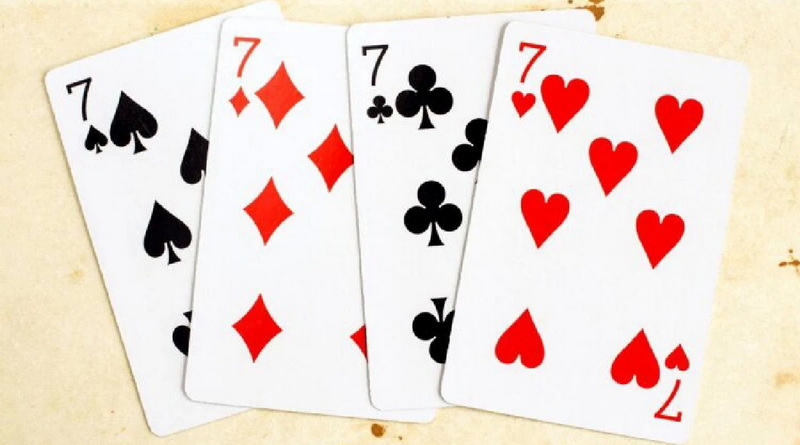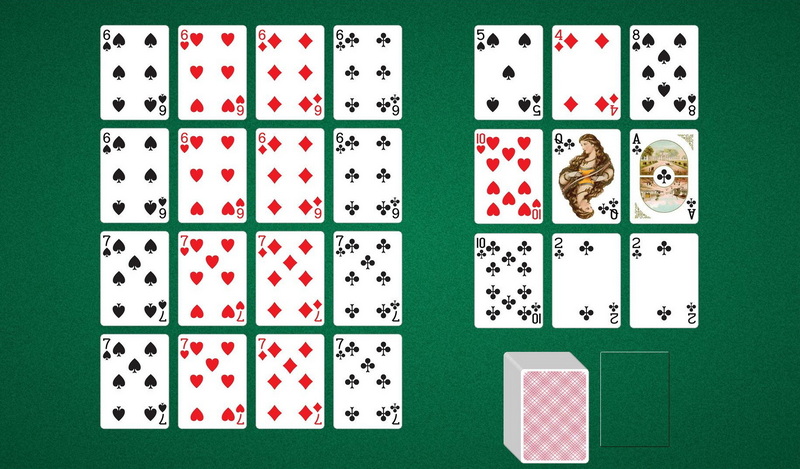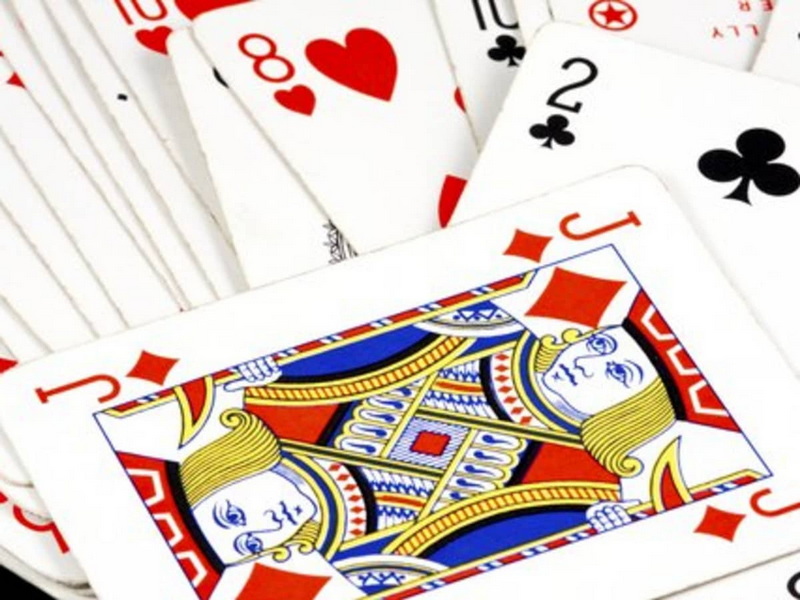Content Menu
● Introduction
● Overview of the Game
>> Objective
● Game Setup
>> Players and Cards
>> Dealing Cards
>> Starting the Game
● Basic Rules of Play
>> Card Placement
>> Turn Structure
>> Ending the Game
● Scoring
● Strategies for Winning
>> Card Retention
>> Observational Skills
>> Playing Extremes
>> Risk Management
>> Psychological Play
● Variations of Sevens
>> Sevens Wild
>> Reverse Sevens
>> Multiple Decks
>> Elimination Sevens
>> Scoring Variants
● Tips for Enhancing Your Gameplay Experience
>> Create House Rules
>> Use Quality Cards
>> Practice Makes Perfect
>> Encourage Friendly Competition
>> Explore Online Versions
● Conclusion
● Frequently Asked Questions
>> 1. How many players can participate in Sevens?
>> 2. What is the main objective of Sevens?
>> 3. Can you use Jokers in Sevens?
>> 4. How do you score points in Sevens?
>> 5. What happens if you can't play a card?
● Citations:
Introduction
Sevens is an engaging card game that combines strategy, skill, and a bit of luck. It is often played with a standard 52-card deck and can accommodate various numbers of players, typically ranging from three to eight. The objective of the game is simple: be the first player to discard all your cards. This article will provide a comprehensive guide on how to play Sevens, including its rules, strategies, variations, and some tips for enhancing your gameplay experience.

Overview of the Game
Sevens is also known by various names such as "Fan Tan," "Parliament," or "Domino." The game is characterized by its unique play style where players build sequences of cards in a layout according to specific rules. The game starts with the sevens, which serve as the foundation for each suit's sequence.
Objective
The primary goal in Sevens is to be the first player to get rid of all your cards. Players must strategically play their cards in ascending or descending order based on the existing layout. This requires not only a good memory but also an understanding of your opponents' strategies and potential moves.
Game Setup
Players and Cards
- Number of Players: Sevens can be played by 3 to 8 players.
- Deck: A standard 52-card deck is used. In some variations, Jokers may be included as wild cards.
Dealing Cards
1. Shuffle the deck thoroughly.
2. Deal all cards evenly among the players. Depending on the number of players, some may have more cards than others.
3. Each player should keep their cards hidden from others.
Starting the Game
- The player holding the seven of diamonds typically starts the game by placing it face up in the center.
- If no one has the seven of diamonds, the next closest card in the diamond suit can initiate play.
Basic Rules of Play
Card Placement
- Players take turns playing one card at a time.
- Cards must be played in sequence:
- A seven starts a new row for its suit.
- Players can add cards that are one rank higher or lower than an existing card of the same suit.
For example:
- If a seven of hearts is played, players can then play either a six or an eight of hearts.
Turn Structure
- Players must play a card if they have a legal move available.
- If a player cannot play any card, they must skip their turn.
- Players may pass up to three times before they are required to play.
Ending the Game
The game concludes when one player has successfully discarded all their cards. At this point, remaining players tally their points based on unplayed cards in their hands.
Scoring
Scoring in Sevens can vary based on house rules, but a common method includes:
- Numbered cards (2-10): 5 points each
- Face cards (Jack, Queen, King): 10 points each
- Aces: 15 points each
- Jokers (if used): 50 points each
The aim is to have the lowest score at the end of multiple rounds. Players often keep track of their scores over several rounds to determine an overall winner.

Strategies for Winning
To excel at Sevens, players should employ various strategies:
Card Retention
- Hold Key Cards: Keep crucial cards like sixes and eights longer to control gameplay and block opponents from progressing.
Observational Skills
- Watch Opponents: Pay attention to what cards other players are playing; this can provide insight into their hands and help you make informed decisions about your moves.
Playing Extremes
- Play High or Low: If possible, play from either end of your hand (very high or very low) to maximize your options for future turns.
Risk Management
- Balance Your Hand: Be cautious about holding onto cards for too long; this could leave you with unplayable cards later in the game.
Psychological Play
- Bluffing and Misdirection: While Sevens is primarily a game of skill, psychological tactics can also play a role. Sometimes pretending you have fewer options than you do can mislead opponents into making poor decisions.
Variations of Sevens
Sevens has several popular variations that introduce unique twists to gameplay:
Sevens Wild
In this variant, Jokers are added as wild cards that can substitute for any card. This adds an exciting element where players can create unexpected sequences.
Reverse Sevens
Players start with Kings and Aces and work backward towards sevens. This variation changes strategic considerations significantly as players must adapt to new starting points.
Multiple Decks
Using two or more decks accommodates larger groups and extends gameplay duration. This variation can lead to exciting chaos as more cards come into play.
Elimination Sevens
Players are eliminated as they run out of moves, with the last remaining player declared the winner. This version adds tension as players must be more cautious about their plays.
Scoring Variants
Some versions introduce specific scoring rules where points are awarded for each card played and penalties are applied for leftover cards at the end. This encourages aggressive play styles as players try to minimize their scores quickly.
Tips for Enhancing Your Gameplay Experience
To make your games more enjoyable and strategic, consider these additional tips:
Create House Rules
Establishing house rules can enhance gameplay by introducing personalized elements that cater to your group's preferences. For example, you might decide that certain cards have special powers or that specific sequences yield bonuses.
Use Quality Cards
Investing in a good quality deck can improve your gaming experience significantly. A well-made deck feels better in hand and lasts longer through multiple sessions.
Practice Makes Perfect
Like many games, practice improves your skills over time. Regularly playing Sevens will help you recognize patterns and develop strategies that work best for you and your group dynamics.
Encourage Friendly Competition
While winning is fun, fostering a friendly atmosphere ensures everyone enjoys themselves regardless of who comes out on top. Celebrate good plays from all participants and maintain light-hearted banter throughout the game.
Explore Online Versions
If you can't gather in person or want to practice alone, consider exploring online versions of Sevens. Many platforms offer digital adaptations that allow you to play against AI or other online players.
Conclusion
Sevens is an enjoyable card game that blends strategy with social interaction. Its straightforward rules make it accessible for players of all ages while offering depth through strategic play. By mastering its rules and employing effective strategies, players can enhance their chances of winning while enjoying time spent with friends and family. Whether you're playing casually or competitively, Sevens provides endless fun and engagement around the table.

Frequently Asked Questions
1. How many players can participate in Sevens?
Sevens can be played by 3 to 8 players, making it versatile for different group sizes.
2. What is the main objective of Sevens?
The main objective is to be the first player to discard all your cards.
3. Can you use Jokers in Sevens?
Yes, in some variations, Jokers are used as wild cards that can represent any card.
4. How do you score points in Sevens?
Points are typically scored based on unplayed cards left in hand:
- Numbered cards: 5 points each
- Face cards: 10 points each
- Aces: 15 points each
- Jokers: 50 points each
5. What happens if you can't play a card?
If you cannot play a card during your turn, you must skip your turn or pass up to three times before being required to play.
Citations:
[1] https://www.coololdgames.com/card-games/shedding/sevens/
[2] https://www.youtube.com/watch?v=sNSfHc1VBh8
[3] https://www.pagat.com/layout/sevens.html
[4] https://www.cnblogs.com/apachecn/p/18462322
[5] https://vegasaces.com/tips/table-games/how-to-play-sevens-card-game/
[6] https://collepic.net/en/game/Sevens
[7] https://www.yxiao.org/search.xml
[8] https://www.youtube.com/watch?v=lkluxn_ya98
[9] https://www.youtube.com/watch?v=oYH5-Or5ik0
[10] https://www.reddit.com/r/boardgames/comments/1difxsz/name_of_american_seven_card_game/
































